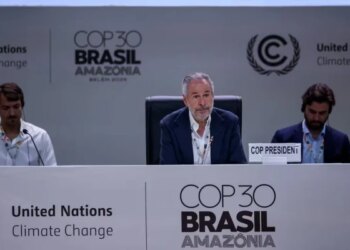Select Language:
Global carbon dioxide emissions from the energy sector reached unprecedented levels for the fourth consecutive year last year, as the reliance on fossil fuels continued to rise, even while renewable energy sources also saw significant growth, according to the latest annual energy report from the Energy Institute released on Thursday.
Why This Matters
The data underscores the hurdles involved in transitioning the global economy away from fossil fuels, especially in light of the ongoing conflict in Ukraine that has altered oil and gas supply routes from Russia, compounded by rising tensions in the Middle East that threaten supply security.
Last year marked the hottest year on record, with global temperatures surpassing 1.5°C (34.7°F) above pre-industrial levels for the first time.
By the Numbers
In 2024, global energy supply experienced a 2% increase, encompassing all energy sources such as oil, gas, coal, nuclear, hydropower, and renewables, marking the first occurrence of simultaneous growth in all energy categories since 2006, the report reveals.
This uptick in energy supply resulted in a 1% rise in carbon emissions, pushing them beyond the previous year’s record of 40.8 gigatonnes of carbon dioxide equivalent.
Among fossil fuels, natural gas exhibited the most significant increase in production, ascending by 2.5%. Coal also saw a 1.2% rise, keeping its status as the primary source of energy generation globally, while oil’s growth remained under 1%.
Wind and solar power expanded by an impressive 16% in 2024, outpacing the total energy demand by a factor of nine, according to the findings.
Context
The Energy Institute, which comprises energy professionals and consulting firms like KPMG and Kearney, took over the responsibility of crafting the report from BP last year.
Experts monitoring progress have indicated that the world is not on track to meet the ambitious goal of tripling renewable energy capacity by 2030, despite the record levels of installations.
Key Quotes
“Last year marked another pivotal moment for global energy, driven by escalating geopolitical conflicts,” commented Romain Debarre from Kearney, a co-author of the report.
“At COP28, a bold strategy was proposed to triple the global renewable energy output by 2030, but advancements have been inconsistent. Despite notable global growth, we still lack the momentum needed,” added Wafa Jafri, a partner at KPMG.
The COP28 conference, held in Dubai in 2023, resulted in an agreement among nations to shift away from fossil fuels to achieve net-zero emissions by 2050.







